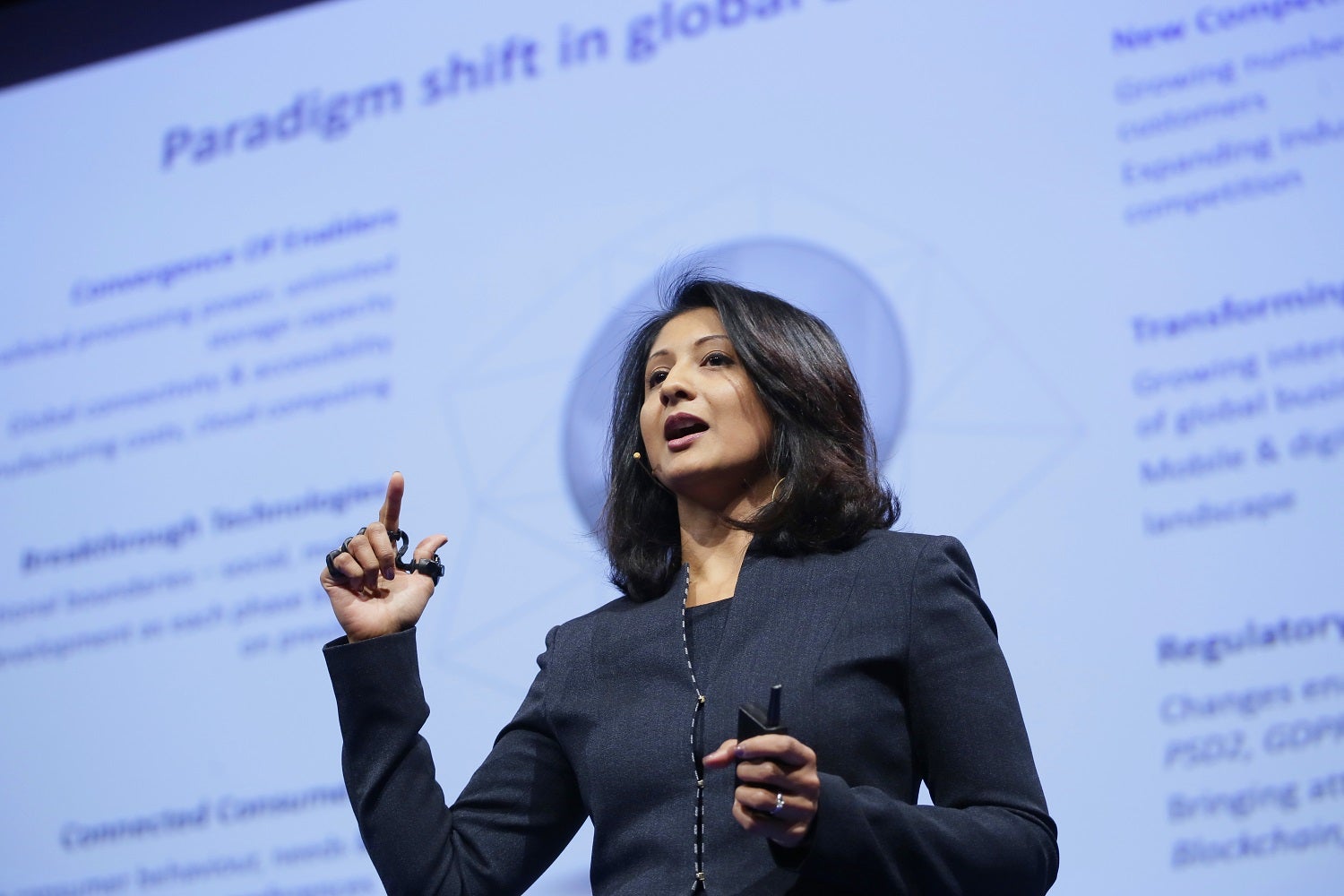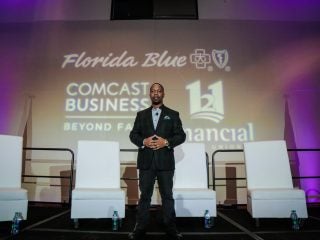Kamales Lardi, author of newly published The Human Side of Digital Business, is an accomplished business woman with expertise in transformative tech, both contemporary and emerging.
Her numerous accolades include being named Top 10 Global Influencers and Thought Leaders in Digital Tranformation by Thinkers360; and Top 50 Women in Tech Influencers 2021 by The Awards Magazine, among others. Considered an expert in blockchain, she also has her finger on the pulse of new and emerging technologies like AI, robotics processing automation, virtual and augmented reality, to name a few.
Lardi established Lardi & Partner Consulting GmbH in 2012, and in that capacity she advises many multinational companies around the world. In June, 2022, she joined Valtech as Managing Director Switzerland. If her plate were not already full, she is also a Teaching Fellow at Durham University Business School, and serves as Chair of Forbes Business Council Women Executives.
Her real passion, though, has much more to do with the human component of digital and business transformation. After more than twenty years of experience in multiple industries, it is diversity that Lardi sees as invaluable to an organization’s long-term success. She is a strong advocate for that diversity, and notes that often in mass layoffs, diverse staff is the first to leave a struggling organization – which to her mind, is counterproductive.
In her book, she looks at the human side of transformative technology – often overlooked in the fast past world of innovation. Lardi touches on valuable information for team leaders about how to incorporate digital solutions successfully, and with purpose.
Swagger caught up with this tech thought-leader to get a glimpse of her ideas and insights on the future of work.
In your own words, what is the new book about?
The one thing I’ve noticed working across various industries and companies as well as regions – Asia, Europe, Middle East, Africa – that can make or break any well-thought out plan or implementation, is the people element. People make or break the success. What I really found interesting is that in two decades, it really hasn’t changed for companies, in the sense that they only focus on the solutions, and the tech. They keep missing out on the human element; that is key. This is what triggered me to write the book: to highlight this element.
What is it that corporations might not understand about the human element?
It’s not about implementing technological solutions. It’s really about changing the way we do business. The success comes from taking people on that journey with us, and preparing for a digital future.
This is what I feel many organizations miss.
Some of the most technologically advanced innovative companies in the world, have their immediate reaction to a shift in the economic climate, to lay off people. So, where is the innovative thinking in that?
Typically what happens is in these type of organizations, it’s not a diverse set of people that get shifted up the organizational structure. They tend to be the ones that are laid off first. What I’ve seen, the question isn’t about the need to retain diversity. It’s about laying off people from a purely numbers perspective.
When we build tech solutions, we want to make sure we have people in the room with a range of different ways of thinking. We are building transformative technologies to change people’s lives across the board, not just for a certain type of people. It’s also very important to have people in the room bringing in alternative ways of thinking. This diversity of thought comes from a range of different backgrounds, sexual orientation, different cultures, genders, educational backgrounds. Those are the people who will come into the room and ask questions to make sure that what we are building technologies that impact people in the right way.
If you lose these diversity of thought in your building, it’s going to result in a homogenous group of people building technology with bias built into it.
What is a company to do in light of an economic pinch, other than to lay off?
Instead of having full time employees, put them in a subcontractor position. At least the talent is retained to a certain extent. Even doing things like reducing salaries. Everyone takes a salary cut, including management. These kinds of things come with a human element built in. You build loyalty with people. At the end of the day, organizations are successful because of the people in it.
Happy troops are more productive, indeed. Now, can you comment on the apparent drive of startups to be the next unicorn?
I’ve spent a number of years being a start-up mentor. It is quite interesting because, yes, there is a certain – I wouldn’t say pressure – but a drive, for companies to be the next unicorn.
We have the right environment and technology to enable this exponential growth. I think this has created certain negatives in this environment. Some of these would be unfair pressure, or goal setting to get to that stage, a singular mindset.
As a mentor for start-ups, a couple of things were missing for me. Even if you were a company with the potential to become a unicorn, the elements around the technology isn’t enough. You need to have a good understanding of your customer and market. Building scale in terms of the number of people who would respond to your product is one thing, but building sustainable business is a completely other thing.
We see this with some of these tech companies that very quickly reach scale and size, have a lot of investors, but after a couple of years of being in business, digging behind the scenes, there is nothing there that is worth money. This is because there is a drive in the market to hit these things.
My personal belief is that your goal shouldn’t be to be the next unicorn. It should be to create something that can transform lives. It’s what I believe in. If we focus on doing that, we will create the scale and impact we want to create.
What would you say are some common mistakes or misconceptions for new entrepreneurs? What do you typically think goes wrong that doesn’t have to?
I started my own company 10 years ago and ran my own company for 10 years. Now, I’ve taken on a different role. I can tell you that people assume it is easy. Oh yeah, I’ll be my own boss and decide everything. It’s the hardest thing you’ll ever do, but it’s the most rewarding as well. This is what a lot of young entrepreneurs forget. You have to pay your dues, no matter what you are doing. Paying your dues builds that character and experience that you need to build something successful.
What I see most with the start-ups that I’ve mentored is the focus on the technology that they are building. I once mentored 10 guys straight out of university, focused on building technology, having nothing else around the company – just the tech.
There was no business experience, no focus on who the customers would be, or how they would use the product, how to grow the organization, production line operations. I think this is the biggest element. You might have a great idea, but this is one element of the book that I try to bring across. You need an ecosystem around you to build a sustainable business around you: the owners, the management, your employees, the customers, tech providers, partners. You need this ecosystem of different people and capabilities to build up a strong, sustainable company.
Define great leadership.
I’ve been in this space since the 90s. Then, you had to be the strong leader, the loudest one in the room, in charge. This has shifted now. Leadership means vulnerability, empathy, leading people of different profiles. This shift is happening. I love to see that, and it’s what has been missing from the business world.



















